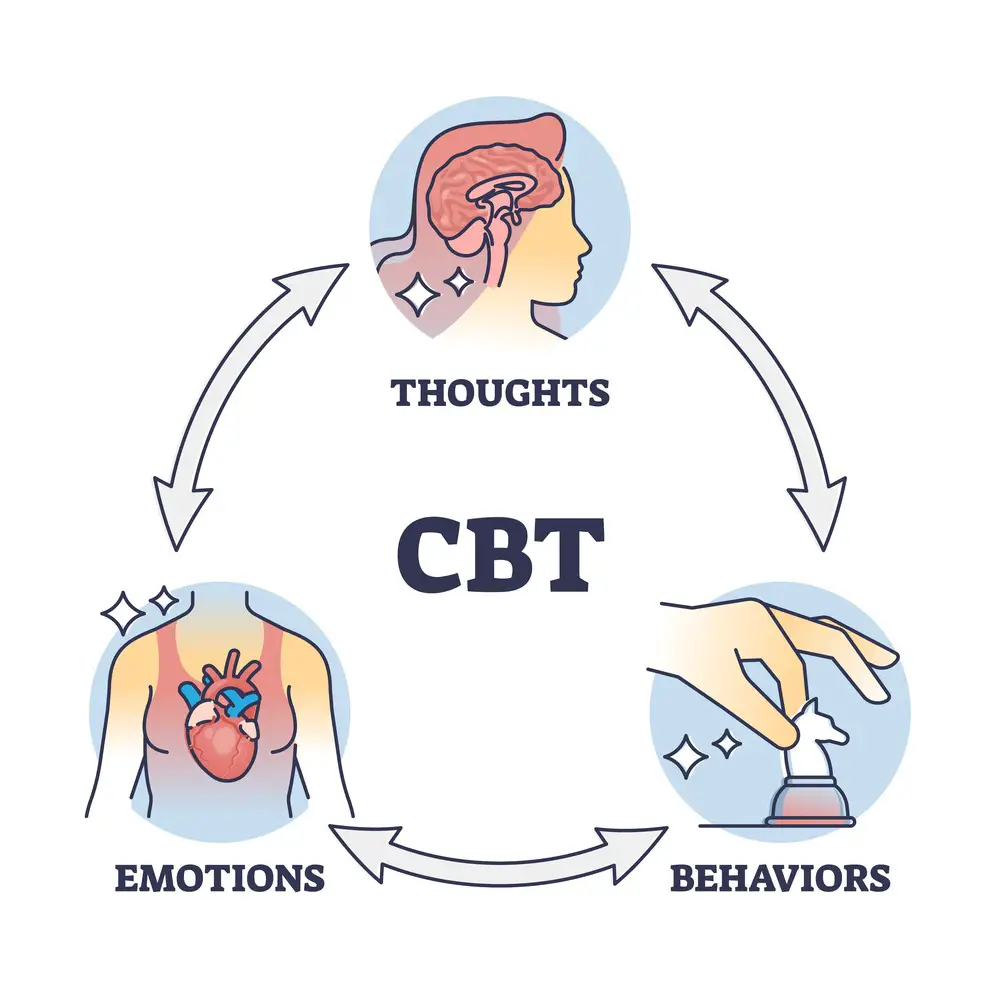Weight loss counseling has gained prominence recently as the obesity epidemic poses a significant threat to public health. With an ever-increasing number of individuals seeking guidance and assistance in their weight loss journey, counseling has emerged as a viable, evidence-based strategy to support sustainable changes in dietary patterns and lifestyle habits. Utilizing a personalized approach, weight loss counselors address the emotional, behavioral, and physical aspects of a client’s relationship with food, empowering them to make informed decisions to achieve a healthier lifestyle.
The role of a weight loss counselor goes beyond merely imparting nutritional knowledge or advocating for specific exercise routines. Instead, these professionals dive deep into the psychological factors that drive unhealthy habits, addressing emotional barriers and the impact of societal pressures on food choices. As a result, individuals can learn to navigate through emotional eating and cultivate a healthier relationship with food by identifying personal triggers and patterns.
This article delves into weight loss counseling, examining its effectiveness and the various techniques counselors employ to help clients overcome challenges and attain healthy, sustainable weight loss. As we explore the multi-faceted nature of weight loss counseling, readers will understand its value in addressing the complex interplay of physical, emotional, and psychological factors that govern our eating habits.
Understanding Weight Loss Counseling
Role of Therapy in Weight Management
Weight loss counseling is an essential component of a comprehensive weight management plan. It helps individuals struggling with weight issues to address the psychological aspects of weight loss. First, a therapist works with clients to identify emotional and behavioral patterns contributing to their weight problems. Then, they provide guidance and support.
Some common issues addressed in weight loss counseling include emotional eating, body image concerns, and developing healthier coping mechanisms. These sessions may be conducted one-on-one or in groups and can be tailored to the individual’s needs.
Cognitive Behavioral Therapy for Weight Loss

Cognitive Behavioral Therapy (CBT) is commonly used in weight loss counseling. It focuses on helping individuals understand the thoughts and feelings that influence their behaviors, notably concerning food and exercise. CBT for weight loss aims to help individuals develop a healthier relationship with food and establish sustainable habits for managing their weight.
In CBT for weight loss, clients work with a therapist to:
- Identify and challenge negative thought patterns related to food and body image
- Develop coping strategies to manage emotional triggers that contribute to unhealthy eating behaviors
- Set realistic, achievable goals related to weight, nutrition, and exercise
- Learn behavioral techniques to increase motivation and improve self-monitoring
Weight loss counseling, particularly when CBT is involved, can be valuable for individuals seeking to achieve a healthier weight and maintain long-term physical and mental health. This type of psychotherapy addresses the physical aspects of weight management and provides essential support for the emotional challenges that often come with the process.
Lifestyle Changes and Habits
Diet and Healthy Eating
When addressing weight loss counseling, diet, and healthy eating play a crucial role. The first step for an individual looking to make lifestyle changes is to assess their diet and eating habits. Keeping a food diary can help identify patterns of overeating and unhealthy food choices.
Supporting the individual in making healthier food choices and adopting appropriate portion sizes can significantly impact weight loss. Recommendations include consuming more protein, fruits, and vegetables while reducing the intake of processed foods and sugary beverages.
Physical Activity and Exercise
Physical activity and exercise are also essential components in achieving weight loss and managing obesity. Assessment of the individual’s current activity level will provide insight into their starting point. Incremental increases in activity and the gradual implementation of exercise routines can benefit individuals aiming to adopt healthier habits.
Regular exercise offers many health benefits, including weight loss, lowered risk of cardiovascular disease, and improved mental health. Individuals can create an exercise plan tailored to their needs, interests, and capabilities by working with a counselor.
Successful weight loss counseling requires addressing diet and exercise as lifestyle changes. Developing healthier eating habits, making thoughtful food choices, and incorporating consistent physical activity are key elements in facilitating sustainable weight management and reducing the risk of various health problems.
Support and Interventions

Individual Counseling
Individual counseling involves working with a registered dietitian or a professional specializing in medical nutrition therapy. This type of intervention focuses on one-on-one sessions, where the client can discuss their relationship with food, set realistic goals, and receive feedback and reinforcement. The counselor helps the client identify improvement areas, develop self-esteem, and build a healthier lifestyle.
Support Groups
Support groups are another intervention that can provide emotional and practical support for individuals seeking weight loss. These groups usually involve sharing personal experiences, discussing common challenges, and encouraging fellow members. Some critical elements of a successful support group include:
- Regular meetings and check-ins
- A safe and non-judgmental environment
- Goal setting and progress tracking
- Access to expert advice and resources
Commercial Weight-Loss Programs
Commercial weight-loss programs offer structured plans, including meal replacements, pre-packaged meals, or exclusive recipes. These programs typically provide support, feedback, reinforcement, and incentives to help clients achieve their weight loss goals.
| Pros | Cons |
| Structured and easy to follow | Can be costly |
| Access to expert advice and tools | May not address underlying emotional issues |
| Built-in support systems | Results may vary |
Finding the best support and intervention method for each individual is crucial. Understanding the options available and discussing them with a healthcare professional can help to determine the most suitable approach to one’s weight loss journey.
Health Benefits and Risks
Prevention and Management of Health Conditions
Weight loss counseling can help individuals address obesity and overweight issues, reducing their risk of developing various health problems. Losing even a modest amount of weight can significantly improve one’s health. For example, weight loss may lower the risk of diabetes, high blood pressure, heart disease, and stroke.
Additionally, decreasing body mass index (BMI) can alleviate the prevalence of sleep apnea, certain cancers, and arthritis. Enhanced weight management may also reduce the risks associated with liver, kidney, and lung diseases. Furthermore, it can aid in addressing fertility issues.
Potential Side Effects of Rapid Weight Loss
While weight loss counseling can lead to numerous health benefits, there can be potential side effects if the process is too rapid. Losing weight quickly can result in the following:
- Dehydration: Rapid weight loss often involves the loss of water weight, which can lead to dehydration if not properly managed.
- Nutrient deficiencies: It is more challenging to meet one’s nutritional needs during fast weight loss.
- Gallstones: Quick weight loss increases the risk of gallstones.
It is crucial for anyone pursuing weight loss to work with a healthcare provider to create a tailored, sustainable plan. This ensures progress and maintenance appropriate for the individual’s unique needs and minimizes the chances of adverse effects.

Self-Monitoring and Accountability
Food and Exercise Tracking
Self-monitoring is an essential aspect of weight loss counseling for establishing healthier habits. One effective approach is tracking food intake and physical activity. This can be done using various methods such as smartphone apps, websites, or traditional pen and paper.
Individuals can identify patterns in their eating and exercise behaviors by keeping a food and exercise diary. This information can be helpful for healthcare professionals when advising on possible adjustments to promote healthier habits. In addition, regular check-ins with a medical professional or support group can enhance accountability and encourage adherence to the recommended changes.
In some cases, especially for individuals with eating disorders or those undergoing bariatric surgery, professional monitoring may be necessary to ensure proper nutrition and avoid complications.
Mindfulness Techniques
Mindfulness can play a significant role in self-monitoring and establishing healthier habits. It involves awareness of one’s thoughts, emotions, and physical sensations regarding food and exercise. Some common mindfulness techniques include:
- Mindful eating: Encouraging individuals to slow down and be aware of their hunger cues, taste and texture, and feelings of fullness. This can help prevent overeating and bring about a greater appreciation for meals.
- Body Scan: A technique that involves mentally scanning one’s body from head to toe, paying attention to sensations and tension areas. This can help connect with the physical body and recognize when stress or emotions may trigger unhealthy eating patterns.
- Meditation: Regular meditation can help individuals manage stress, which could otherwise contribute to unhealthy eating habits. It also fosters greater self-awareness and control over one’s choices.
Incorporating mindfulness techniques into weight loss counseling can complement other preventive services to foster long-lasting physical and mental health improvements. While self-monitoring and accountability are vital, achieving successful and sustainable weight loss may also require the support of medical professionals and the integration of various approaches, including medicine, dietary adjustments, and exercise routines.
FAQs
What is weight loss counseling?
Weight loss counseling is supportive and professional guidance for individuals seeking to lose weight through diet, exercise, and lifestyle changes. Counselors may be dietitians, nutritionists, doctors, or life coaches who provide personalized advice and assistance in setting and achieving weight loss goals.
How does weight loss counseling work?
Weight loss counseling typically involves an initial assessment where the individuals:
- Current weight
- Health status
- Medical history
- Exercise habits
- Diet preferences
Are evaluated. Based on this information, the counselor develops a customized weight loss plan with achievable short-term and long-term goals. Then, the individual and counselor work together to implement the plan, monitor progress, and adjust as needed.
What are the benefits of weight loss counseling?
Some potential benefits of weight loss counseling include the following:
- Expert guidance on nutrition and exercise
- Accountability and motivation
- Tailored weight loss plan
- Emotional support during challenges
- Prevention of health issues associated with obesity
How long does it take to see results?
The speed at which individuals see results varies depending on factors such as:
- Starting weight
- Goal weight
- Level of Commitment
- Persistence
- Consistency
However, safe and sustainable weight loss generally occurs at a rate of 0.5 to 2 pounds per week.
Can anyone participate in weight loss counseling?
Weight loss counseling can be suitable for various individuals, including those who:
- Struggle to lose weight independently _ Have medical conditions affected by weight
- Desire professional guidance and support
However, it is essential to consult a healthcare professional before beginning any weight loss program to ensure its appropriateness and safety.
- The Burnout Epidemic: Why We’re All Feeling Overwhelmed and How to Cope - February 9, 2024
- How to Live a Peaceful Life - February 9, 2024
- Useful Information You Should Know About Health Screenings - February 8, 2024
This site contains affiliate links to products. We will receive a commission for purchases made through these links.




